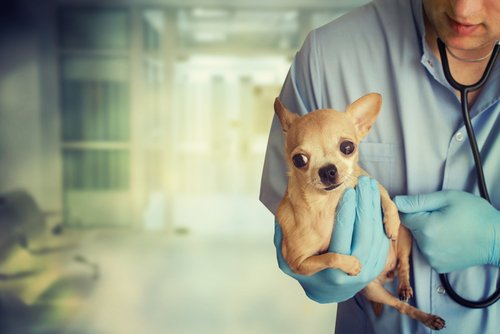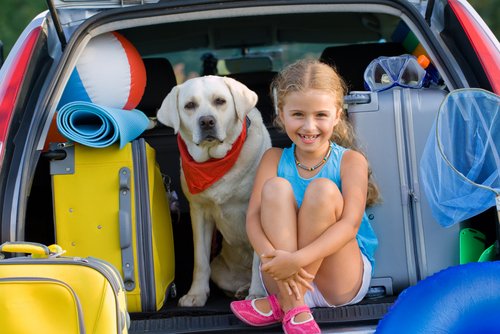My Dog Gets Dizzy


Written and verified by the lawyer Francisco María García
It’s usually pretty alarming for pet owners when their dog gets dizzy, and this could mean that there is something seriously wrong with their dog. There are many reasons why this may happen and it’s necessary to have a vet diagnose the problem and prescribe treatment for it.
If your dog is dizzy, it might be an ear condition
Dogs become dizzy when the middle ear, inner ear or the cerebellum are disturbed. There’s a fluid in the middle and inner ear that helps maintain the balance inside the brain, as well as with spatial orientation. When these areas of the body are altered by an infection, disease or any other condition, the dog’s brain tells the body that it’s off balance and then the dog gets dizzy.

As with people, some dogs are prone to hypoglycemia. When this happens, the animal can get dizzy. This condition is treated by giving the dog supplements or a special diet. This will help them prevent future episodes of dizziness.
Some causes of dizziness in dogs
Some bites — like insect bites — can also cause dizziness in dogs. Sometimes, a dog may get dizzy after getting bit by a bug. This is one of the main reasons that causes changes in the inner or middle ear.
Most infections in the dog’s ear can be relieved with antibiotics. When the infection is severe or chronic, surgery may be necessary to relieve pressure in the inner or middle ear in order to keep the dog from getting dizzy.
Heart disease can also cause dizziness, which is usually related to exhaustion. Animals with advanced cancer stages can also get dizzy often, especially when the tumor invades the brain or areas near the ears.
How to act if your dog gets dizzy?
In episodes of dizziness, dogs may have troubles walking or even keeping their head straight. It’s important that the animal stays still. It’s best for them to sit with their head down, or even lays on the ground with their back slightly raised. Even if they aren’t shaking, you should cover them up so they don’t get cold.
Don’t make your dog eat or drink, or shake them to get a reaction, after a dizzy episode. The best thing to do is take them to the vet, even if they seem to be fine, to determine the cause of his dizziness.
Going on tips
Some dogs handle car rides very poorly and this is hard on their owners. The animal may begin to vomit right at the beginning of the journey. There are solutions for this. First, make sure your dog is familiar with the vehicle. They should feel comfortable in the car without the engine running.

Another tip that may work is raising and lowering the animal into the car repeatedly. Eventually, they’ll calm down and realize that nothing happens. But another important issue is food. Make sure that your pet doesn’t eat within five hours of getting in the car. It’s also necessary to limit their water intake. They should travel on an empty stomach in order for them to be less likely to vomit.
There are many medications on the market for dogs that tend to suffer from dizziness. They considerably reduce the symptoms and have no side effects. There are also some natural products.
Your pet should be calm before the trip and you shouldn’t try to distract them. Trying to play games or do anything else may worry them, and they could end up getting dizzy even faster.
The way you drive
Some other useful tips are to drive relaxed without a lot of braking and acceleration. You should also turn on the air conditioning or keep the fresh air blowing through the car to help with your dog’s oxygenation. This will also help you avoid any strong smells in the car. Also, be sure to make stops so they can go to the bathroom, drink some water and stretch.
This text is provided for informational purposes only and does not replace consultation with a professional. If in doubt, consult your specialist.